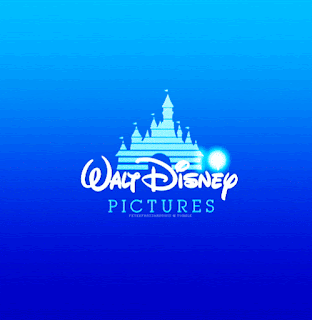"Disney isn't in the business of exploiting Nature so much as striving to improve upon it, constantly fine-tuning God's work." -Carl Hiassen,
Team Rodent
In one sentence, Carl Hiassen has stated what I find to be the single most mind-blowing thing about Disney. Disney is this perfectly well-oiled machine pushing out happiness and sucking in money. Does Disney's desire to maintain it's multi-billion dollar business make it evil, though? Essentially, the American answer is no. I mean, the American dream is own a business in a capitalist society and have a happy life, so we can't blame Walt Disney for pursuing this dream and capitalizing on it in every way possible. But how far is too far in the realm of business?
In class we discussed Henry Giroux's
Animating Youth and, for him, too far was when Disney began "hijacking" the youth's childhood under its "scandalous philosophy of money." Basically, Giroux got pretty heated because Disney was using it's movies, parks, and advertisements to totally encompass every aspect of the youth's lives. Giroux is a bit bitter and paranoid though, I must say. Of course when he uses the words "hijacking" and "commercial carpet bombing," Disney begins to seem like an evil terrorist group out to take over the mind of the youth all across the world, BUT in reality, it's a children's company. Of course it targets children, not very many adults tend to find appeal in oversized mice dressed in overalls. Giroux is reaching a bit in his article-- he can't blame Disney for what the 21st century has done to children. Disney didn't make technology more advanced or popular-- you can charge that problem to Apple (consequently the largest shareholder in Disney). In the words of Hiassen, Disney simply "improved upon" what was already in front of it. Children were already using loads of media, so Disney brought it's movies, games, and tv shows to the internet, to DVD, and to cell phones. But again, what business hasn't? Giroux can't blame Disney for keeping up with fast-pace technology era or for broadening it's audience to include boys and an older age group. It's simply JUST business-- business that Disney does extremely well in comparison to most companies.
(Pause: Disney's company actually has it's own
website. That's so surreal. I've never even really thought about Disney as a business-- even as I've been writing these blogs-- just as a realm of happiness and dreams, but the website makes it so real. Disney happiness is partially about the money.)
Carl Hiassen takes a different attack on Disney. He actually blames Disney for consistently trying to tweak nature and dodge rules in order to fit its agenda.
1. Disney physically changed the appearance of Bay Lake in order to make the Disney tower there more photogenic.
2. Disney attempts-- and gets state approval-- to build a park 6 miles from a Civil War memorial site.
In this situation I'm actually not sure which is more un-American, defecating a war memorial OR opposing Disney, but the people in Virginia were sure and that's why "Disney America" never happened.
 |
| Apparently this is representative of what that park would've looked like and, rumor has it that there might be a rebirth of the plan. |
3. Disney buys and creates a sovereign city called 'Reedy Creek' so that its park will remain solely under its own jurisdiction.
 |
| Reedy Creek has its own emergency services-- including a fire department. |
If these three points don't attest to Disney's power, then maybe the fact that Disney consistently tries to casually rewrite History into this pretty, polished timeline will help.
1. Disney has "Main Street America" in its major theme park, but is that really representative of America? Or is it simply the polished, conservative view that Disney can sell?

2. Disney even took the courtesy of casually changing a previously drug-smuggling island into a cute resort. Castaway Cay is classic representation of Disney using its power to polish over the past in order to fit it into the current agenda.
 |
| Beautiful Disney resort or drug smuggling island? |
Ironically, Justice Burger referred to Disney as being well-known for patriotic and history-minded enterprise... but how? When you really check the facts, Disney has a bad habit of glazing over the real history and making it Disney-friendly. (No really, has he not seen Pocahontas?) So, the question is whether Justice Burger was bribed to say that or if Disney's innocence really does shield it from critique and scrutiny as Giroux said. I mean, if America only consisted of white, middle-class, conservatives then yeah, sure. Disney is doing a great job. But America doesn't only consist of those people and neither does its history.
Let's be clear: I don't hate Disney and for the most part, I don't think there's anything wrong with how Disney does its thing. BUT, there are some questionable and shady things going on in the background. I'm not on Giroux's side-- I don't think Disney is corrupting the minds of children. I think the sector of Disney that writes movies and TV shows is full of innocence, magic, and good intentions. However, the part of Disney that digs up and refills swamps, creates a sovereign city, and covers up all its blunders with large sums of money-- that part of Disney needs to be checked. This is capitalist America, but even the average American hates Donald Trump, an amazing (AND SHADY) businessman. So, let's look at Disney's BUSINESS a little closer because it isn't all magic fairy dust and princess smiles.







